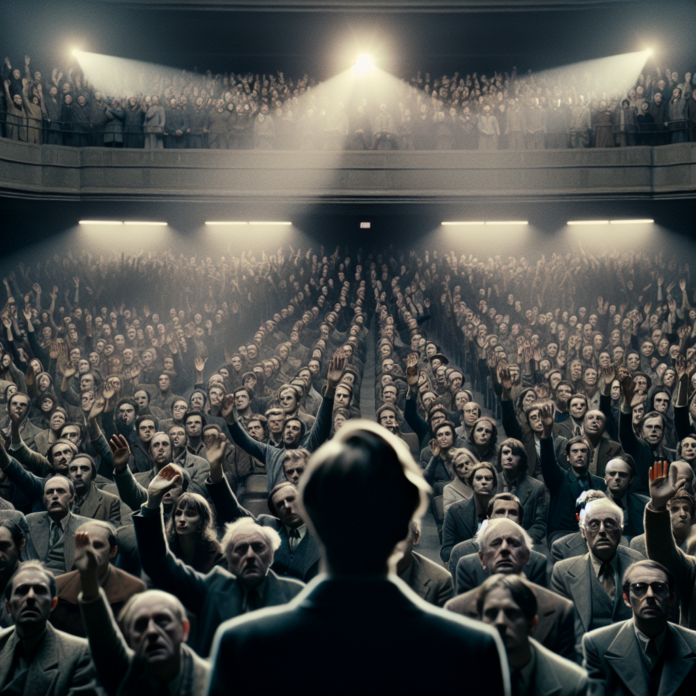Celebrity Worship: The Case Against Catholic Stars
The phenomenon of celebrity worship is not a unique product of the 21st century; the modern iteration merely amplifies tendencies that have been present for centuries. In recent years, we have seen this fascination with grandeur and notability permeate even the sacred halls of religion, particularly within the Catholic Church. While faith is a deeply personal journey for many, some Catholics have found themselves entranced by the allure of celebrity clout within their religious ranks, a trend that warrants scrutiny.
The cultural influence of Catholicism spans centuries, from its roots in the Roman Empire to its profound impact on European history and beyond. In recent years, however, certain factions within the Church have clung to notions of Catholic conservatism, constructing their identities around figureheads who espouse the permanence of traditionalist values. This trend is most visible in the glorification of celebrities who are vocal about their adherence to pre-Vatican II practices.
The Latin Mass, revived in recent decades, stands as a battleground for traditionalist claims of authenticity. While it undeniably carries a rich historical tapestry woven with centuries of liturgical tradition, its revival often signals more than a simple appreciation for history. In some circles, it has become a litmus test for one’s commitment to "true" Catholicism, setting up a dichotomy that can marginalize those seeking to harmonize their faith with modern life. This longing for the Latin Mass, therefore, serves as a microcosm for a broader issue: the sometimes stifling grip of conservatism within the Church.
Enter Catholic celebrities like Mel Gibson and Jim Caviezel, who have used their platforms, intentionally or not, to foster a following of religious conservatives who view them as cultural warriors fighting against the tide of modernity. While we must acknowledge their contributions to the popularization of Catholic narratives in mainstream media, it is essential to question the ramifications of elevating entertainment figures to prominent voices within a faith context. When celebrity worship bleeds into religious practice, it can distort the teachings of the Church to fit the celebrity’s own views, overshadowing gospel truths with mere human interpretation.
In fostering a celebrity status within religious circles, we face the peril of shifting the focus from spiritual growth and community to personality cultism and dogmatism. Pope Francis, with his emphasis on inclusivity, humility, and social justice, has voiced his hope for a more open and engaged Church—a vision which sometimes contrasts starkly with the rigid traditions heralded by Catholic celebrities and their followers. Unlike the media-savvy figures who attract attention with their adherence to the past, Pope Francis has worked toward bringing Catholicism into conversation with contemporary societal issues, reflecting a Church responsive to its time rather than transfixed by its past.
The Pope’s progressive values, encapsulated in his emphasis on mercy over strict dogma, represent a necessary shift towards a more inclusive Catholicism. His papacy marks a conscious and deliberate attempt to move beyond mere ceremonial adherence to establish an engaging dialogue with today’s world. By supporting movements like environmental stewardship, addressing income inequality, and advocating for the marginalized, Pope Francis has offered a counter-narrative to the celebrity-focused traditionalism that seems to flourish in certain Catholic circles.
History offers us lessons about the dangers of idolizing those who present themselves as bastions of traditional values during times of cultural change. The Church’s complicated past—from dealing with corruption within its ranks during the Renaissance to its nuanced position during political upheavals—shows us that rigid adherence to tradition does not immunize faith from faults. Instead, it highlights the necessity for reform and reevaluation, akin to what Pope Francis champions today.
While traditionalist Catholic celebrities provide a semblance of stability through their vocal conservatism, it’s crucial for the future of the Church that their influence is balanced by voices that celebrate the dynamic nature of faith in an evolving world. Those who hold faith genuinely should draw inspiration not from temporal cultural icons but from figures who embody the Church’s holistic teachings.
Ultimately, the danger lies not in the appreciation of a sacred tradition or the personalities within the Church but rather in elevating those elements above the genuine mission of the faith. As the Church continues to navigate a delicate balance between history and progress, it is incumbent upon its followers to choose those who elevate substance over spectacle and inclusivity over exclusion.
In recognizing the encroaching likening of Catholic figures to the cult of celebrity within the Church, believers have the opportunity to refocus on the tenets that guide their personal faith journeys. By doing so, adherents can support a broader cultural shift that values progressive engagement and open discussion over clinging to ostentatious relics of authority. The path forward—exemplified by Pope Francis—encourages us to progress with hope, ever listening to the contemporary cries for justice and understanding.
